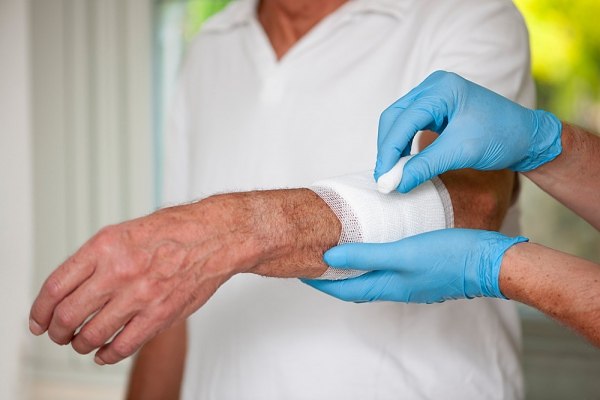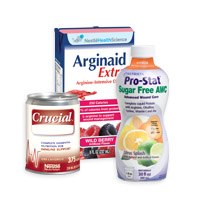 What is a Wound?
What is a Wound?
There are many different kinds of wounds. A wound can be anything from a simple break in the skin to a severe open sore that won’t go away. Generally, wounds are described by how and when they started and how quickly they are expected to heal.
View First Aid Products
For example, if a wound starts quickly and seems to be clearing up without any problems, it is called an “acute” wound. An acute wound might be a surgical incision. But if you have a wound that is being treated for several weeks (and may not be healing very well), it is called a “chronic” wound. A chronic wound could be a bed sore or a leg ulcer. View Our Wound Healing Formulas
Nutrition and Wounds
Poor nutrition makes it easier for wounds to develop, especially eating low amounts of protein. Protein is very important for healthy skin, your body’s protective outer layer. Protein helps the skin strong so that it does not tear easily. If protein levels in you body become low, your skin may become weak and you could get a wound or sore. To help avoid this problem, make sure you are eating enough protein.
High levels of protein are needed to help wounds heal. Protein helps build new skin so that an open wound will close and cover over. Protein also plays a big part in fighting infection. Take a look at our High Protein Supplements .
Calories are another important part of wound healing. Calories give your body the energy it needs to keep working every day. When your body is working harder to heal a wound, it may need extra calories.
Things to Increase
A balanced diet overall is important for wound healing, but increasing the following nutrients may be helpful. (Ask your home health nurse or your doctor for the specific targets that are best for you.)
Protein Target: 75 to 100 grams per day
In addition to your other daily meal choices, include the following protein sources:
• Milk and dairy products
• Eggs (cooked)
• Lean meat, fish, or poultry
• A high-protein nutritional supplement
Calories Target: 1,700 to 3,150 Calories per day
In addition to your daily meal choices, include some of the following high-calorie foods:
• Cereals
• Breads
• Fruits and vegetables
• Fats such as butter, margarine and oils can be used to increase calories
Vitamin C Target: 100 to 200 mg per day
In addition to your other daily meal choices, include some of the following foods high in Vitamin C:
• Citrus fruits and fruit juices
• Cantaloupe
• Tomatoes
• Potatoes
• Dark green vegetables
Zinc Target 15 to 25 mg per day
In addition to your other daily meal choices, include some of the following foods high in zinc:
• Lean meats and poultry
• Organ meats (such as liver)
• Whole grain products

< View Wound Care Products
< Back to Helpful Articles



 What is a Wound?
What is a Wound? 







